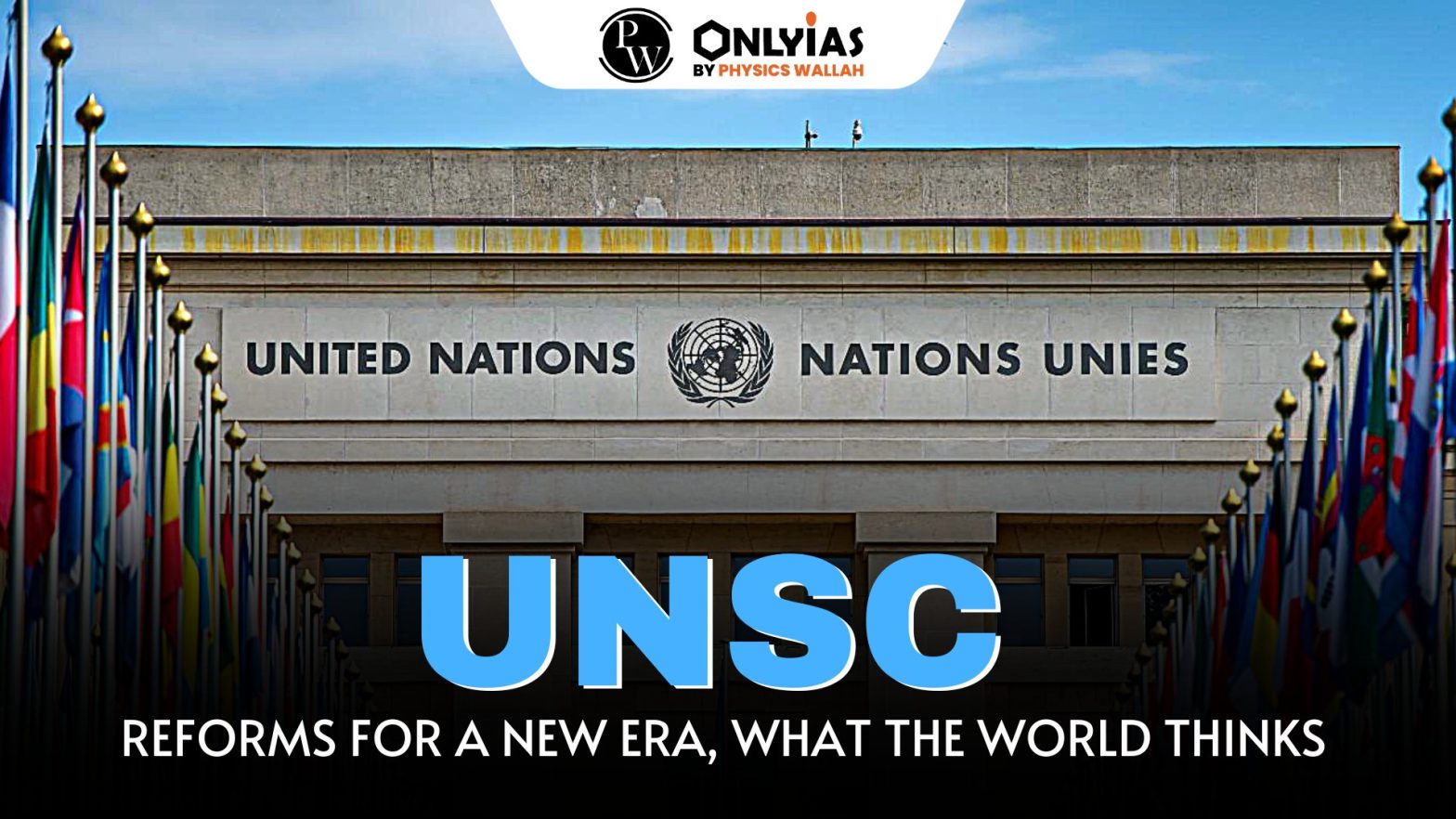Context:
- This article is based on an Editorial “UN Security Council reform is a song in a loop” which was published in the Hindu. Then-United Nations (UN) Secretary General Boutros Boutros-Ghali declared that Security Council reform must be accomplished in time for the 50th anniversary of the world organization in 1995.
- But, more than three decades after the debate first started, the issue of reform seems to have resurfaced at the ongoing General Assembly session.
A Call for Urgent UNSC Reforms
- Missing Geopolitical Realities of Present: The Security Council reflects the geopolitical realities of 1945 and not of today.
- Veto Power by Permanent Members: The five permanent members (China, France, Russia, the United Kingdom, and the United States) enjoy the privilege of a veto over any Council resolution or decision.
- Under-Representation: The UN was founded in 1945 and consisted of 11 members out of a total UN membership of 51 countries, i.e., some 22% of the member states., while today, there are 193 member-states of the UN, and only 15 members of the Council i.e., fewer than 8%.
- Many countries, both in absolute numbers and as a proportion of the membership, do not feel adequately represented on the body, highlighting the need for UNSC reforms.
- Undue Weightage: The composition of the Council gives undue weightage to the balance of power of those days.
- For example, Europe accounts for barely 5% of the world’s population, and still controls 33% of the seats in any given year (excluding Russia).
- Unjust in Equity: Japan and Germany have for decades been the second and third largest contributors to the UN budget, while still being referred to as ‘enemy states’ in the United Nations Charter (since the UN was set up by the victorious Allies of the Second World War).
- Denial of Opportunity: It denies opportunities to other states such as India, which is highly populous, have a great share in the world economy, or contributions in kind to the UN (like participation in peacekeeping operations) have helped shape the evolution of world affairs, highlight the need for UNSC reforms.

Why are reforms needed in UNSC?
- The UN’s Secretary-General also warned by making a statement that the world has changed, while institutions have not and hence are unable to effectively address problems of the world.
- Instead of solving problems, they risk becoming part of the problem.
- President of Türkiye remarked that the Security Council has ceased to be the guarantor of world security and has become a battleground for the political strategies of only five countries.
- Proposal of creating a second category of “Semi-Permanent Members” to accommodate states for, say, 10-year electable terms. However, it has no takers among the principal aspirants.
- Demand by the Small Countries: They are content to compete occasionally for a two-year non-permanent seat on the Council.
- Demand by Medium-sized and Large Countries: They deeply resent the current status of the organization.
- Many are openly animated by a spirit of competition, and have successfully and infinitely baffled the reform of the membership of the Security Council.
- Difficult to Amend: Any amendment requires a two-thirds majority of the overall membership, and would further have to be ratified by two-thirds of the member states.
- It means the amendment will both persuade two-thirds of the UN member-states to support it and not attract the opposition of any of the existing permanent five.
Also read: United Nations Day for South-South Cooperation 2023 – Theme, History & Significance
Conclusion
The Security Council is the only global system that brings all countries together on a common platform, hence reformist steps should be taken as soon as possible to maintain and expand its effectiveness and relevance.
| Prelims Question
With reference to the “United Nations Credentials Committee”, consider the following statements:
1. It is a committee set up by the UN Security Council and works under its supervision.
2. It traditionally meets September every year.
3. It assesses the credentials of all UN members before submitting a report to the General Assembly for approval.
Which of the statements given above is/are correct?
(a) 3 only
(b) 1 and 3
(c) 2 and 3
(d) 1 and 2
Ans: (a) |
![]() 12 Oct 2023
12 Oct 2023

